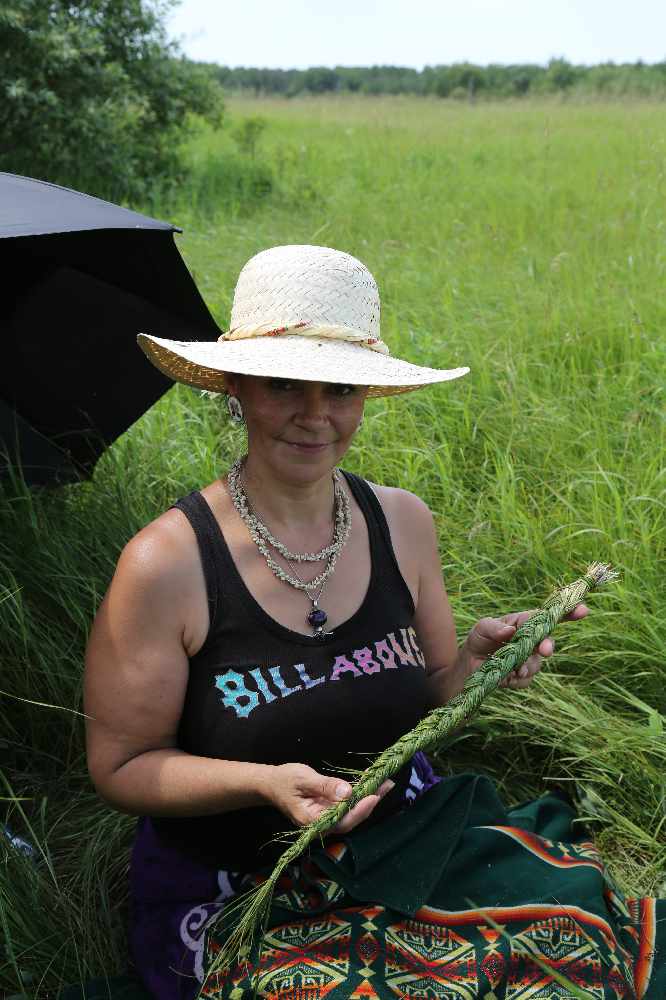
By Naomi Gordon
Windspeaker.com Archives
EDMONTON, Ont.
The golden, tulip-shaped flowers and vanilla-scented leaves distinguish this two-foot perennial in the wild. It has many names, but most commonly it's referred to as Sweetgrass, a plant used in traditional Aboriginal ceremonies and a plant that many people are beginning to grow at home to harvest.
Sweetgrass, also known as Holy Grass, Buffalo Grass, Vanilla Grass, and Zebrovka, is one of the four sacred plants, (including cedar, sage and tobacco) and is used as a tool for prayer and purification. Native people believe it is the hair of Mother Earth and is considered a gift from the Creator.
"It is a wild grass that must be respected and used properly," said Marion Sinclair of the Edmonton Native Healing Centre. "There are certain protocols that must be done when harvesting Sweetgrass, such as offering tobacco."
Brad Seneca, executive director of the Bent Arrow Traditional Healing Society and a spiritual advisor from the Anishnawbe First Nation in Ontario, said that although Sweetgrass is found across Canada, it is most predominately used by Native peoples on the Prairies.
He believes that many people are starting to grow Sweetgrass at home because Sweetgrass fields are no longer in abundance.
"Through the teachings I have learned by the Elders, I don't see anything wrong with growing or picking Sweetgrass, as long as people recognize and respect the three elements that Sweetgrass represents: mind, body and spirit."
Certain ceremonies must be observed before the grass is harvested, giving a blessing to the earth and praying to the four directions, the four grandfathers, he said.
"If you are taking from the earth, you must then honor the earth," said Seneca. Lois Frank, of the Blood First Nation in southern Alberta is a professor of Native Studies at the University of Lethbridge. She said there is much debate about Aboriginal ceremonial practices, in respect to teaching and sharing information with the public.
However, she believes many First Nations people have moved into urban centres and have become isolated from their tradition and culture. It becomes difficult for these individuals who want to participate in ceremonies and follow cultural protocol, when they don't have access to the people who can show them the proper and respectful ways.
For example "many people are not aware that Sweetgrass is to be given as a gift or in an exchange, not to be purchased," said Frank.
Although the purchasing of Sweetgrass evokes varied opinions, Seneca said "if someone buys Sweetgrass, they must give it away to replenish and return its power."
It is suggested that individuals try and adhere to the customary practices of the communities to which they belong. If people have questions about where to find Sweetgrass in the wild or how to bless and honor the earth before harvesting, many healing and friendship centres across the country can be of help.
